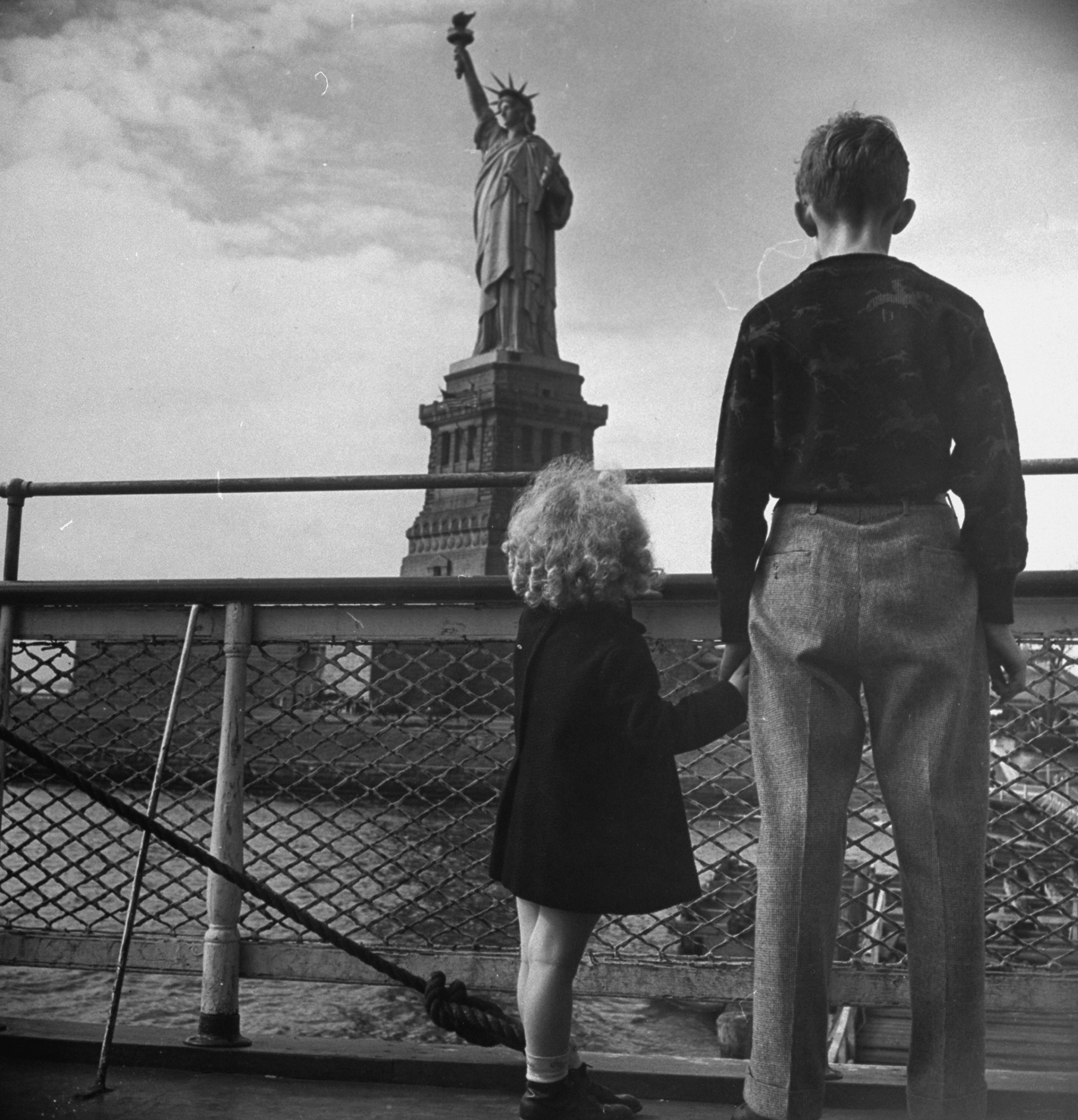
Many crises faced by President Harry Truman when he came into office in the waning days of World War II. One of them would plague him for years: What to do with the refugees? By some counts, up to 60 million Europeans had been driven from their homes during the course of the war.
At the time, the U.S. was well-established as a destination for immigrant — despite turning away some migrants during the war — but didn’t have a specific law to deal with refugees per se. In late 1945, Truman signed a directive that allowed faster admission and resident-status changes for some refugees. But a wider-sweeping action would be needed, especially as the quota-based system that governed American immigration applied strict limits to the national origins that had the most need of help. Truman subsequently asked Congress to come up with a law that would address the crisis.
This conversation was taking place in the years before the nascent United Nations — which marks June 20 as World Refugee Day — issued the 1951 Refugee Convention, which set out how the international community ought to address people who had been driven from their homes. But, though the world hadn’t yet agreed on those terms, the conversation about refugees was at a fever pitch; even years after the war’s end, millions remained unsettled.
By mid-1947, when the refugee bill he’d requested was not forthcoming, Truman sent Congress a special message explaining why he considered the move necessary.
Here’s how he explained in that message, the full text of which can be found at the American Presidency Project website, why he believed the United States needed such a law:
…These victims of war and oppression look hopefully to the democratic countries to help them rebuild their lives and provide for the future of their children. We must not destroy their hope. The only civilized course is to enable these people to take new roots in friendly soil. Already certain countries of Western Europe and Latin America have opened their doors to substantial numbers of these displaced persons. Plans for making homes for more of them in other countries are under consideration. But our plain duty requires that we join with other nations in solving this tragic problem.
…In the light of the vast numbers of people of all countries that we have usefully assimilated into our national life, it is clear that we could readily absorb the relatively small number of these displaced persons who would be admitted. We should not forget that our Nation was founded by immigrants many of whom fled oppression and persecution. We have thrived on the energy and diversity of many peoples. It is a source of our strength that we number among our people all the major religions, races and national origins.
Most of the individuals in the displaced persons centers already have strong roots in this country — by kinship, religion or national origin. Their occupational background clearly indicates that they can quickly become useful members of our American communities. Their kinsmen, already in the United States, have been vital factors in farm and workshop for generations. They have made lasting contributions to our arts and sciences and political life. They have been numbered among our honored dead on every battlefield of war.
We are dealing with a human problem, a world tragedy. Let us remember that these are fellow human beings now living under conditions which frustrate hope; which make it impossible for them to take any steps, unaided, to build for themselves or their children the foundations of a new life. They live in corroding uncertainty of their future. Their fate is in our hands and must now be decided. Let us join in giving them a chance at decent and self-supporting lives.
I urge the Congress to press forward with its consideration of this subject and to pass suitable legislation as speedily as possible.
In 1948, the Displaced Persons Act — which the U.S. Citizenship and Immigration Services office calls the first U.S. law specifically dealing with “refugees” as such — was passed. Truman, in a signing statement, acknowledged his unhappiness with a law that he saw as a halfhearted measure that was overly restrictive and biased.
“I know what a bitter disappointment this bill is — to the many displaced victims of persecution who looked to the United States for hope; to the millions of our citizens who wanted to help them in the finest American spirit; to the many Members of the Congress who fought hard but unsuccessfully for a decent displaced persons bill,” he said. “I hope that this bitter disappointment will not turn to despair.”
More Must-Reads from TIME
- Donald Trump Is TIME's 2024 Person of the Year
- Why We Chose Trump as Person of the Year
- Is Intermittent Fasting Good or Bad for You?
- The 100 Must-Read Books of 2024
- The 20 Best Christmas TV Episodes
- Column: If Optimism Feels Ridiculous Now, Try Hope
- The Future of Climate Action Is Trade Policy
- Merle Bombardieri Is Helping People Make the Baby Decision
Write to Lily Rothman at lily.rothman@time.com